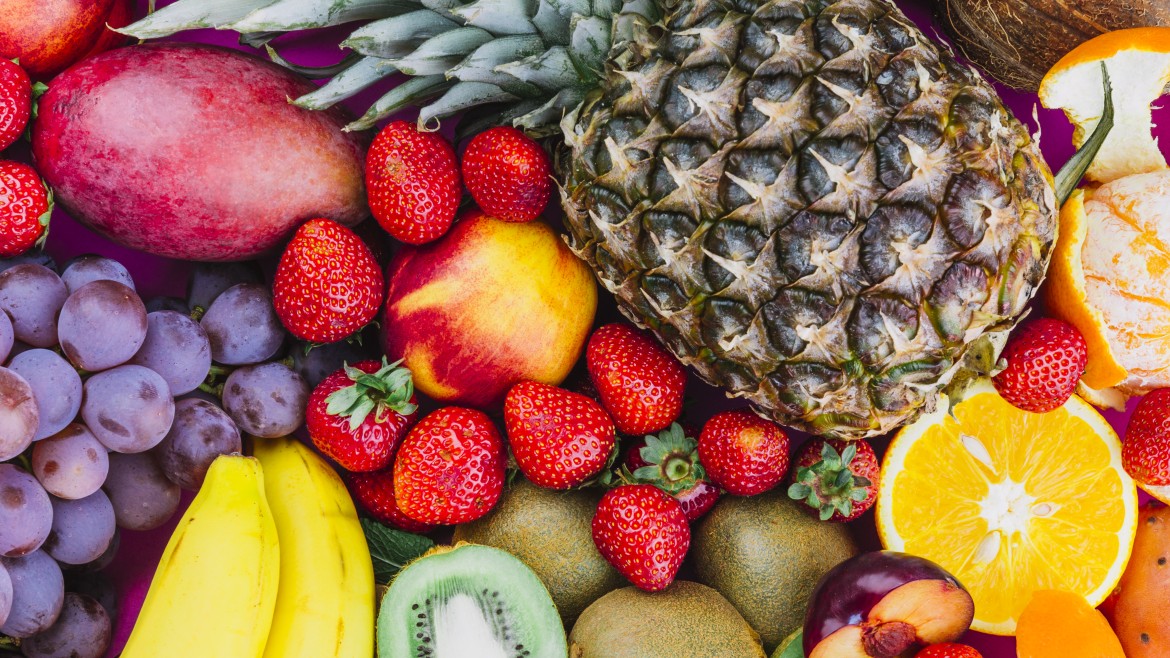
Introduction
Hormonal imbalances can lead to a range of health issues, including mood swings, weight gain, fatigue, acne, and digestive problems. Eating the right fruits and vegetables can help support hormonal balance naturally by providing essential vitamins, minerals, and antioxidants. This article explores the best hormone-balancing fruits and vegetables to include in your diet for improved overall well-being.
Best Fruits for Hormonal Balance
1. Berries
Berries are packed with antioxidants that help reduce oxidative stress and inflammation, supporting adrenal and thyroid health.
- Blueberries: Improve insulin sensitivity and combat oxidative stress.
- Strawberries: Support estrogen metabolism and promote healthy skin.
- Raspberries: Rich in fiber and vitamin C, which helps balance cortisol levels.
2. Bananas
Bananas are high in vitamin B6, which plays a crucial role in regulating mood-related hormones like serotonin and dopamine. They also support stable blood sugar levels, preventing insulin spikes.
3. Pomegranates
Pomegranates contain natural phytoestrogens that help balance estrogen levels. They are also rich in antioxidants that protect cells from damage and support heart health.
4. Citrus Fruits
Citrus fruits like oranges, lemons, and grapefruits aid in liver detoxification, which is crucial for hormone balance. They are high in vitamin C, which supports adrenal gland function and reduces cortisol levels.
5. Avocados
Avocados are loaded with healthy fats that support hormone production. They help balance estrogen and progesterone levels while providing fiber, potassium, and vitamin E.
6. Apples
Apples contain quercetin, a flavonoid that has anti-inflammatory and antioxidant properties. They also support liver function, which helps the body detoxify excess hormones.
Best Vegetables for Hormonal Balance
1. Cruciferous Vegetables
Cruciferous vegetables contain compounds like indole-3-carbinol, which help the body metabolize and detoxify excess estrogen.
- Broccoli: Supports liver detoxification and hormone metabolism.
- Cauliflower: Helps balance estrogen and reduce inflammation.
- Brussels Sprouts: High in fiber and antioxidants that regulate hormones.
- Cabbage: Promotes digestive health and supports hormone detoxification.
2. Leafy Greens
Leafy greens are rich in magnesium, iron, and B vitamins, all of which are crucial for hormone production and regulation.
- Spinach: Helps stabilize blood sugar and supports adrenal function.
- Kale: Contains compounds that aid in estrogen metabolism and detoxification.
- Swiss Chard: High in antioxidants that reduce inflammation and support hormone balance.
3. Sweet Potatoes
Sweet potatoes are a great source of complex carbohydrates and fiber, which help regulate insulin levels. They also contain vitamin A, which supports thyroid function and reproductive health.
4. Bell Peppers
Bell peppers are high in vitamin C and antioxidants, which help reduce cortisol levels and support adrenal health. They also contain fiber, which aids in digestion and hormone detoxification.
5. Carrots
Carrots contain beta-carotene, which supports progesterone production and overall reproductive health. They also aid in estrogen detoxification, promoting hormonal balance.
6. Beets
Beets support liver function and help flush out excess estrogen from the body. They are also rich in folate and iron, which support energy levels and overall well-being.
How to Incorporate Hormone-Balancing Fruits and Vegetables into Your Diet
- Smoothies: Blend berries, bananas, and leafy greens for a hormone-balancing breakfast.
- Salads: Create colorful salads with cruciferous vegetables, citrus fruits, and avocado.
- Roasted Vegetables: Roast sweet potatoes, bell peppers, and beets for a nutritious meal.
- Snacks: Enjoy apple slices with almond butter or carrot sticks with hummus.
Conclusion
Incorporating hormone-balancing fruits and vegetables into your diet can help regulate hormones naturally and improve overall health. Berries, bananas, citrus fruits, cruciferous vegetables, leafy greens, and root vegetables provide essential nutrients that support hormone production and detoxification. By making these nutrient-rich foods a regular part of your meals, you can promote long-term hormonal balance and well-being.

